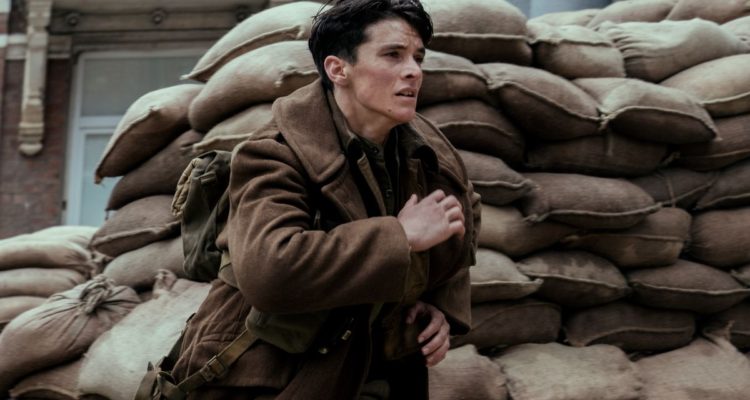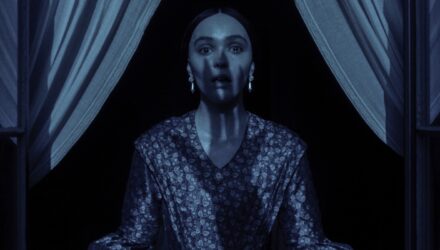I love Christopher Nolan, so take it from me; this one took a bit to warm up to.
Written and directed by Nolan and taking place in 1940 during World War II, Dunkirk follows the true story of the brutal battle then mass retreat of Allied forces on the beaches of Dunkirk, France during a low point in the war when all seemed lost. Following three separate storylines, one in the sky, one at sea and one on the actual beaches of Dunkirk itself, our various protagonists must fight against the odds and overcome the constant threat of German forces to do one thing and one thing only: get every soldier they can back home safe and sound. The rest, as they say, is history.
Disclaimer: Christopher Nolan is my favorite director, hands down; so keep that in mind as you read this review. That being said, for most of the runtime I felt a little underwhelmed. I had certain high hopes for this film and the fact that most of the reviews and general feelings toward it hail it as one of the best, if not the best war film to ever to grace the silver screen, didn’t help its cause. This isn’t the best war film of all time, it isn’t even the best Nolan film of all time, so if you so choose to believe in any of this hype, be forewarned.
Now, with that out of the way, let me get this out in the open next: Dunkirk, as a whole and as a war film, isn’t bad or mediocre by any stretch of the imagination. It truly is a stunningly shot and acted film with the highest of highs and the most middling of middles happening throughout, all structured in a way that might have seemed great on paper, but is a little off in practice. Edited in that mind bendy, time displaced way that Nolan loves; Dunkirk essentially tells us from the opening scene that this film will be a waiting game, and even though it’s vaguely unclear at first, we’re watching the story – and the three branching plot threads – one week before present time, one day before and one hour before, all following separate characters with very little obvious overlap until the triumphant last third of the movie finally rears its head.
While not the weirdest way to structure a Nolan film (Memento holds that cake), it’s tough to understand what’s going on unless you hang onto every word said and pay attention to every frame flashing before you. The reasoning being that Nolan likes to make his audiences work for the payoffs in his films; he doesn’t hold your hand in figuring things out and does his best to give you something to ponder while watching, but in what should have arguably been his most linear film yet (after all this is a historical epic based on true events), Nolan takes a decidedly different approach that pays off only after an hour of being shown a whole bunch of information that might not readily make sense in the grand scheme of things, nor help you become attached to any one character or event as we jump back and forth between storylines at a brisk pace.
Even with this unconventional way of shooting, Nolan still has his head in the right place when it comes to action. One of the only filmmaker nowadays that seems to resist the trend of shooting everything with as much computer graphics as possible, Nolan has crafted some truly inspired action set pieces with almost all practical effects and real life photography. Seeing hundreds if not thousands of real people lined up on the beaches of Dunkirk, or watching real planes dance and fight in the sky, or simply seeing unflinching shots of war and terror without the added “Bay-splosion” aspect of it all, is a refreshing way to tackle a film like this that adds to the tension and horrors of what really happened all those years ago, giving the audience the closest possible recreation of something that we could have never normally comprehended, and for that, I tip my hat.
But none of this really matters without some great actors to fill the roles we see onscreen. Being Nolan’s muse of sorts as of late, Tom Hardy stands out as one of the best actors in the film, a feat that’s doubly impressive considering he’s in the cockpit of a fighter plane with no more than hand movements and his eyes to convey everything going on around him, a task that Hardy excels at as usual. Mix in a few unknown actors like Fionn Whitehead, Harry Styles (yes that Harry Styles) and veterans alike such as Kenneth Branagh and Mark Rylance, and you have a perfectly suitable cast for what Nolan is trying to accomplish here. My main gripe with any of this mostly comes down to Nolan’s script however, because outside of a few, short character moments, this film is more of a show than a tell kind of story, a lot of the character development and emotion inherent in a normal, character driven epic falling a bit to the wayside as Nolan focuses on the overall idea of telling his story as opposed to the characters in it. Don’t get me wrong, there’s a few great moments dealing with characters that really stand out, but for the most part, these scenes get lost in the shuffle considering the fact that the next horror of war is always waiting just around the corner. Oddly coming in at under two hours, I strongly feel that adding even another fifteen minutes could have alleviated some of these gripes, but as it stands, the script did more with less, so I guess I shouldn’t complain.
While still a truly stunning movie at times, Dunkirk suffers from an extremely disconnected first half that doesn’t do much outside of paint a horrible picture of war and loss and what it takes to survive. By the time the third act rolls around the film admittedly fires on all cylinders, but getting there takes a little time and patience, enough of both that it might ruin some people’s viewing experience. Nolan is still a master of his craft and still my favorite director, but I’d have to put this film a little lower on my list than I was hoping for walking in.
8.1
Homeward Bound
The Verdict
8.1





